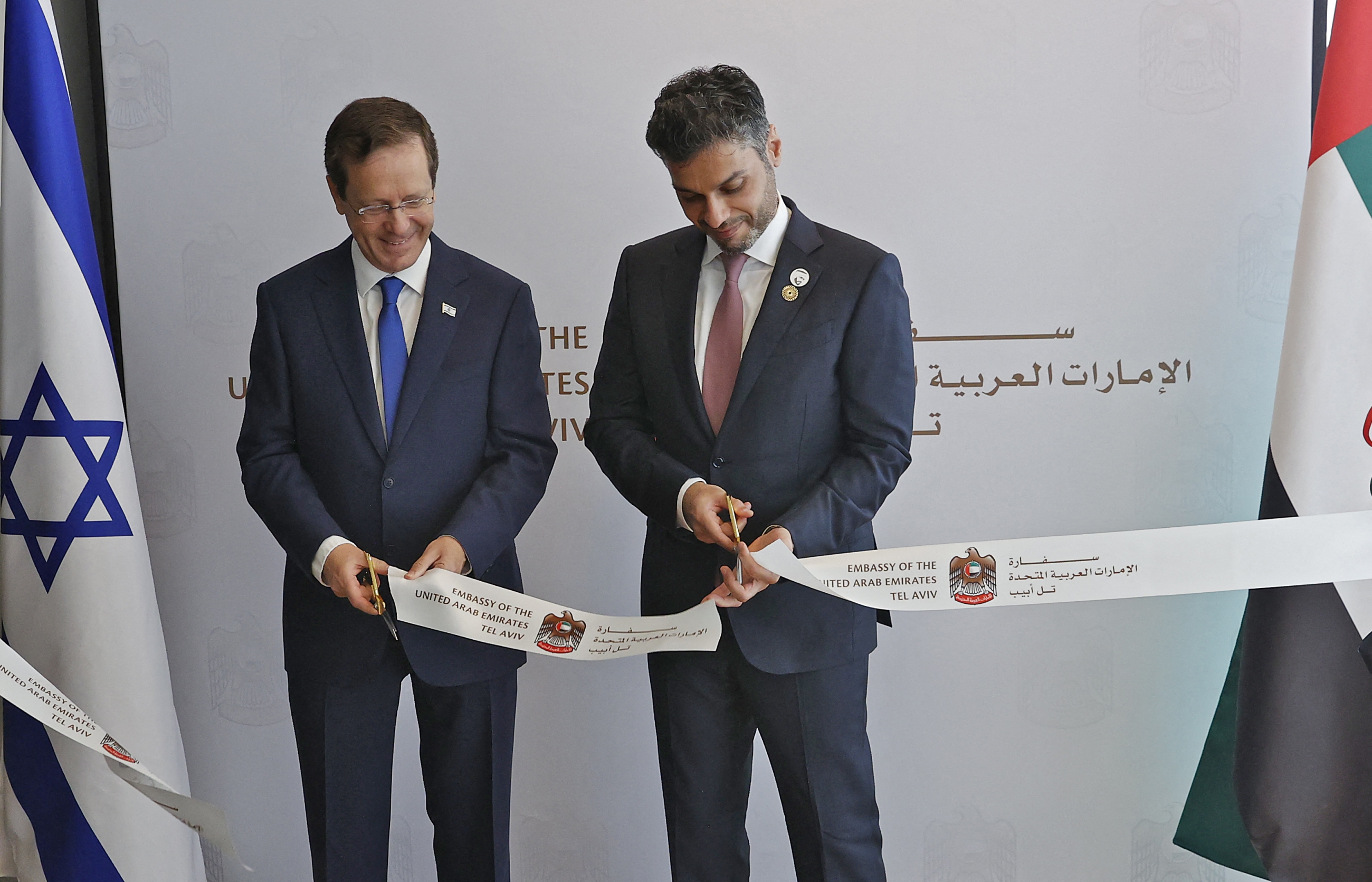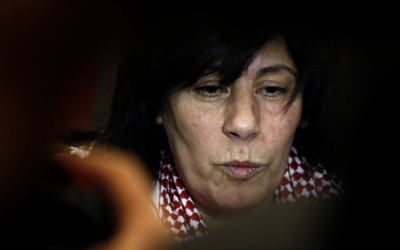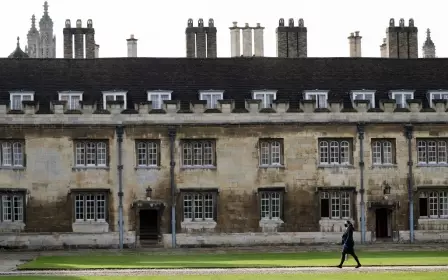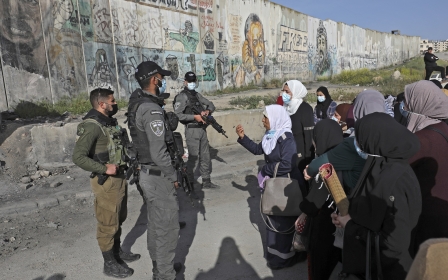UAE opens new embassy in Israel following normalisation agreement

The United Arab Emirates has opened its new embassy in Israel, becoming the the first Gulf state to do so in the wake of normalisation agreements signed last year.
The country's envoy hailed the trade and investment opportunities that closer ties with Israel would bring at a flag-raising ceremony also attended by Israel's president.
The new embassy is situated in the Tel Aviv Stock Exchange. Its opening follows the inauguration of Israel's embassy in the UAE last month.
"Since the normalisation of ties ...we have seen for the first time discussions on trade and investment opportunities," UAE ambassador Mohamed Al Khaja said, after raising his country's flag outside the building.
"We signed major agreements across various fields, including economy, air travel, technology and culture."
New MEE newsletter: Jerusalem Dispatch
Sign up to get the latest insights and analysis on Israel-Palestine, alongside Turkey Unpacked and other MEE newsletters
Israeli President Isaac Herzog called the opening of the embassy "an important milestone in our journey towards the future, peace prosperity and security" for the Middle East.
"Seeing the Emirati flag flying proudly in Tel Aviv might have seemed like a far-fetched dream about a year ago," he said. "In many ways nothing could be more natural and normal."
Brought together by shared unease about Iran, the UAE and Bahrain normalised relations with Israel last year under the "Abraham Accords" crafted by the administration of then-US President Donald Trump.
Sudan and Morocco have since also moved to establish ties with Israel.
The recognition agreements have been denounced by the Palestinians, as well as a number of other countries, who said such an agreement should not occur while Israel continues to occupy and expand settlements on Palestinian land.
However, the UAE has claimed the accords would ultimately benefit the Palestinians.
For years, the Palestinians have said that normalisation would weaken a long-standing pan-Arab position that only an Israeli withdrawal from occupied territories and acceptance of Palestinian statehood would allow for normal relations with the Arab countries.
In the UAE last month to inaugurate Israel's temporary embassy in Abu Dhabi and consulate in Dubai, Israeli Foreign Minister Yair Lapid said bilateral trade since normalisation exceeded $675m and he expected more deals.
The regional rapprochement has been deplored by the Palestinians, who want their demands for statehood free of Israeli occupation addressed first.
Middle East Eye delivers independent and unrivalled coverage and analysis of the Middle East, North Africa and beyond. To learn more about republishing this content and the associated fees, please fill out this form. More about MEE can be found here.





